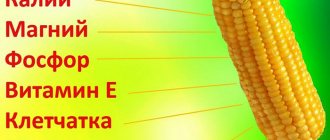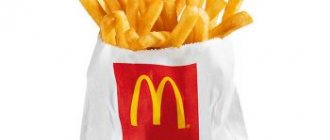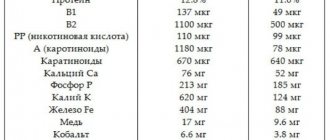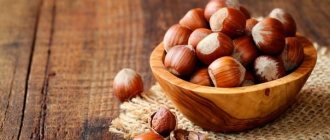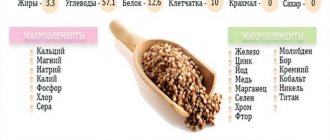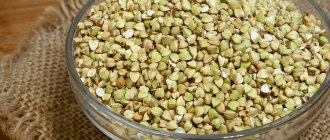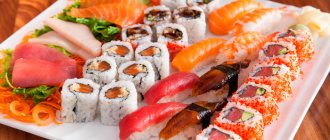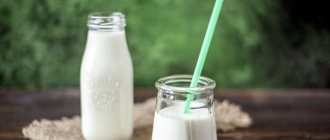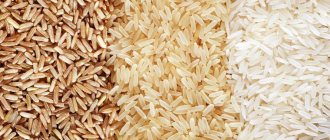© weyo — stock.adobe.com
Share:
Butter is a dairy product obtained by whipping or separating cream. It is used as a food additive in many dishes and is widely used in folk medicine and cosmetology.
Natural butter contains not only milk fat, but also proteins and a set of water-soluble vitamins and minerals. Moderate consumption of natural oil does not lead to obesity and does not negatively affect the functioning of the heart, but on the contrary, has a positive effect on health.
Composition and calorie content of butter
Natural cow's butter contains essential and non-essential amino acids, poly- and monounsaturated fatty acids, as well as vitamins and minerals, which have a positive effect on both the functioning of internal organs and the functioning of the entire body as a whole. The calorie content of butter with 82.5% fat content is 748 kcal, 72.5% - 661 kcal, ghee (99% fat content) - 892.1 kcal, goat butter - 718 kcal, vegetable butter (spread) - 362 kcal per 100 G.
Butter that contains vegetable fats cannot be considered creamy in the truest sense of the word.
Note: a teaspoon of traditional butter (82.5%) contains 37.5 kcal, a tablespoon - 127.3 kcal. During the frying process, the energy value of the product does not change.
Nutritional value of butter per 100 grams:
| Variety | Carbohydrates | Squirrels | Fats | Water |
| Butter 82.5% | 0.8 g | 0.5 g | 82,5 | 16 g |
| Butter 72.5% | 1.3 g | 0.8 g | 72.5 g | 25 g |
| Ghee | 0 g | 99 g | 0.2 g | 0.7 g |
| Vegetable butter (SPREAD) | 1 g | 1 g | 40 g | 56 g |
| Goat milk butter | 0.9 g | 0.7 g | 86 g | 11.4 g |
The ratio of BJU butter is 82.5% – 1/164/1.6, 72.5% – 1/90.5/1.6, ghee – 1/494.6/0, vegetable – 1/40/1 per 100 grams respectively.
Chemical composition of natural butter per 100 g in table form:
| Item name | 82,5 % | Ghee | 72,5 % |
| Fluorine, mcg | 2,8 | – | 2,8 |
| Iron, mg | 0,2 | 0,2 | 0,2 |
| Selenium, mcg | 1 | – | 1 |
| Zinc, mg | 0,1 | 0,1 | 0,15 |
| Potassium, mg | 15 | 5 | 30 |
| Phosphorus, mg | 19 | 20 | 30 |
| Calcium, mg | 12 | 6 | 24 |
| Sulfur, mg | 5 | 2 | 8 |
| Sodium, mg | 7 | 4 | 15 |
| Vitamin A, mg | 0,653 | 0,667 | 0,45 |
| Choline, mg | 18,8 | – | 18,8 |
| Vitamin D, mcg | 1,5 | 1,8 | 1,3 |
| Vitamin B2, mg | 0,1 | – | 0,12 |
| Vitamin E, mg | 1 | 1,5 | 1 |
| Vitamin PP, mcg | 7 | 10 | 0,2 |
| Saturated fatty acids, g | 53,6 | 64,3 | 47,1 |
| Oleic, g | 22.73 g | 22,3 | 18,1 |
| Omega-6, g | 0,84 | 1,75 | 0,91 |
| Omega-3, g | 0,07 | 0,55 | 0,07 |
In addition, 82.5% cow butter contains 190 mg of cholesterol, 72.5% butter contains 170 mg, and ghee contains 220 mg per 100 g.
The chemical composition of vegetable butter and goat's milk butter contains minerals and vitamins, as well as mono- and polyunsaturated fatty acids such as linoleic, linolenic and oleic.
Use in cooking
It is recommended to use butter for ready-made products, but it is not recommended to use it for frying. On the other hand, if you fry food on it, it produces much less carcinogens than any vegetable fat. If you need to use butter for frying, use melted butter: this variety has a much higher smoke point and is also stored for a long time, up to a year.
You can make ghee yourself: you need to carefully heat the butter, preferably in a water bath, until it becomes liquid.
It is necessary to maintain it at this temperature for about 30 minutes, during which time the excess water will evaporate and the milk proteins will float to the top. These milk proteins must be carefully removed from the surface, and the remaining mixture must be carefully strained - this will be ghee.
Thanks to its neutral and delicate taste, butter has gained popularity also with the use of additives, for example, juices from fruits and berries, cocoa and chocolate to obtain a chocolate variety, and even honey were often added to it.
Health benefits for women and men
Women's and men's health benefits only from natural or homemade butter, which does not contain trans fats, salts or preservatives.
Systematic consumption of oil as a dietary supplement has a positive effect on the body, namely:
- The condition of facial skin, hair, and nails improves. Peeling of the skin, splitting of nails stops, hair becomes less brittle and brittle.
- The bone skeleton is strengthened.
- Visual acuity improves.
- The functioning of the gastrointestinal tract is normalized, the risk of constipation and pain caused by exacerbation of gastritis are reduced.
- The work of the mucous membranes is normalized.
- The production of hormones is normalized, mood improves, and the risk of developing depression decreases.
- Increases performance and endurance, which is especially useful for people involved in sports.
- The functioning of the reproductive organs improves.
- The likelihood of fungal infections is reduced. In addition, butter is used as a prophylactic against candidiasis.
- Brain function improves, especially in the cold season, when brain activity suffers due to vitamin D deficiency.
- The risk of cancer and metastases is reduced.
- Immunity is strengthened.
It is beneficial to eat butter in the morning on an empty stomach, spreading it on whole grain bread or adding a piece to your coffee. This will relieve morning nervousness, relieve irritation of the mucous membranes, energize the body and increase performance.
© anjelagr — stock.adobe.com
Coffee with a piece of homemade or natural butter (72.5% or 82.5%) can be drunk on an empty stomach in the morning for the purpose of losing weight, since the optimal combination of amino acids, healthy fats, linoleic fatty acid and vitamin K in the drink leads to an acceleration of fat metabolism, reducing the feeling of hunger and, as a result, losing extra pounds. In addition, the drink can be drunk to prevent cardiovascular diseases.
Frying in butter is recommended only if it is melted.
Otherwise, the oil will begin to crystallize and burn at temperatures above 120 degrees, which entails the formation of carcinogens - substances that increase the risk of developing malignant tumors.
Butter made from vegetable fat, also known as a spread, brings health benefits (improves the functioning of the cardiovascular system, helps fight obesity, normalizes digestion) only if it is a natural and high-quality product made from a milk fat substitute with minimal trans fat content. Otherwise, apart from low calorie content, there is nothing useful in it.
Goat butter
Goat butter:
- improves overall well-being;
- has an anti-inflammatory and analgesic effect on the body;
- improves vision;
- accelerates the healing process of wounds;
- improves the functioning of the musculoskeletal system;
- accelerates the process of recovery of the body after surgery (on the intestines or stomach) or serious illness.
In addition, goat oil is useful for women to eat during breastfeeding to improve the quality of milk. It is used for preventive purposes against diseases such as atherosclerosis and hypertension.
Useful properties of ghee
Ghee is a food product obtained by heat treatment of butter. The beneficial properties of ghee are determined by the presence of unsaturated fatty acids, which are necessary to maintain the health of tissues and many internal organs.
Melted butter:
- normalizes hormone production;
- reduces the manifestation of allergies;
- improves thyroid function;
- prevents the development of osteoporosis;
- improves vision;
- improves digestion;
- strengthens the immune system;
- strengthens bone tissue;
- improves brain activity;
- strengthens the heart and the walls of blood vessels.
Homemade ghee can be eaten by people with lactose intolerance. The product is widely used in the cosmetic field for facial skin rejuvenation.
© Pavel Mastepanov — stock.adobe.com
How to select and store
Try to avoid buying butter that is wrapped in parchment. The fact is that in this case the oil is exposed to direct sunlight, as a result of which it oxidizes and loses its beneficial properties. It is better to give preference to one that is sold wrapped in foil.
If you bought oil and it turns out that it has been exposed to sunlight for a long time, as a result of which the top layer has become yellow and dull, you just need to cut off the top layer and throw it away, the rest is completely fine to consume.
Of course, it is best to store butter in the refrigerator, or at least in a place where the temperature does not exceed 12 degrees. Give preference to dark places, because, as already mentioned, sunlight has a detrimental effect on the product.
It is not recommended to use pure glass for storage; it is better to give preference to ceramics or porcelain. The fact is that oil in glass quickly loses its beneficial properties.
Medicinal properties
In folk medicine, homemade butter is used in dozens of recipes.
It is used:
- for the treatment of cough;
- for pain in the gums;
- in the presence of a rash, lichen, burns or hives;
- for the treatment of intestinal flu;
- from colds;
- to give elasticity to the skin, as well as to prevent dry skin;
- to eliminate pain in the bladder.
The oil can also be used during the cold season to energize the body.
Ghee is used to treat migraines, joint and lower back pain, and hemorrhoids.
What is useful Butter 82.5% fat, traditional (including Vologda)
- Vitamin A
is responsible for normal development, reproductive function, skin and eye health, and maintaining immunity. - Vitamin D
maintains calcium and phosphorus homeostasis and carries out the processes of bone tissue mineralization. A lack of vitamin D leads to impaired metabolism of calcium and phosphorus in the bones, increased demineralization of bone tissue, which leads to an increased risk of developing osteoporosis.
You can see a complete guide to the healthiest foods in the “My Healthy Diet” app.
- home
- Product composition
- Composition of dairy products
- Chemical composition “Butter 82.5% fat, traditional (including Vologda)”
Tags:
Butter 82.5% fat, traditional (including Vologda) calorie content 748 kcal, chemical composition, nutritional value, vitamins, minerals, what is useful Butter 82.5% fat, traditional (including Vologda) , calories, nutrients, beneficial properties Butter 82.5% fat, traditional (including Vologda)
Energy value, or calorie content
- this is the amount of energy released in the human body from food during the digestion process. The energy value of the product is measured in kilocalories (kcal) or kilojoules (kJ) per 100 grams. product. The kilocalorie used to measure the energy value of food is also called a food calorie, so when caloric content is reported in (kilo)calories, the prefix kilo is often omitted. You can see detailed energy value tables for Russian products here.
The nutritional value
— content of carbohydrates, fats and proteins in the product.
Nutritional value of food product
- a set of properties of a food product, in the presence of which the physiological needs of a person for the necessary substances and energy are satisfied.
Vitamins
, organic substances required in small quantities in the diet of both humans and most vertebrates. Vitamin synthesis is usually carried out by plants, not animals. A person's daily requirement for vitamins is only a few milligrams or micrograms. Unlike inorganic substances, vitamins are destroyed by strong heat. Many vitamins are unstable and are “lost” during cooking or food processing.
source
Harm to the body
The recommended daily dose of natural butter consumption is 10-20 g. If the product is abused, the human body can be harmed in the form of increased cholesterol levels in the blood and the risk of thrombosis.
If the recommended daily intake is regularly violated, heart and liver diseases can develop. In addition, oil is a high-calorie product, so the habit of adding it to all dishes without following the norm leads to obesity.
Vegetable butter, as a rule, contains trans fats that are harmful to health. In addition, consuming a low-quality product can lead to poisoning, stomach upset and fever.
Abuse of ghee is fraught with disturbances in the functioning of the thyroid gland, liver, and gall bladder.
Eating ghee is contraindicated for people suffering from:
- diabetes mellitus;
- gout;
- cardiac diseases;
- obesity.
The recommended intake of ghee is 4 or 5 teaspoons per week.
© Patryk Michalski — stock.adobe.com
What is useful Butter 72.5% fat, peasant
- Vitamin A
is responsible for normal development, reproductive function, skin and eye health, and maintaining immunity. - Vitamin D
maintains calcium and phosphorus homeostasis and carries out the processes of bone tissue mineralization. A lack of vitamin D leads to impaired metabolism of calcium and phosphorus in the bones, increased demineralization of bone tissue, which leads to an increased risk of developing osteoporosis.
You can see a complete guide to the healthiest foods in the “My Healthy Diet” app.
- home
- Product composition
- Composition of dairy products
- Chemical composition “Butter 72.5% fat, peasant”
Tags:
Butter 72.5% fat, peasant calorie content 661 kcal, chemical composition, nutritional value, vitamins, minerals, benefits Butter 72.5% fat, peasant, calories, nutrients, beneficial properties Butter 72.5% fat, peasant
Energy value, or calorie content
- this is the amount of energy released in the human body from food during the digestion process. The energy value of the product is measured in kilocalories (kcal) or kilojoules (kJ) per 100 grams. product. The kilocalorie used to measure the energy value of food is also called a food calorie, so when caloric content is reported in (kilo)calories, the prefix kilo is often omitted. You can see detailed energy value tables for Russian products here.
The nutritional value
— content of carbohydrates, fats and proteins in the product.
Nutritional value of food product
- a set of properties of a food product, in the presence of which the physiological needs of a person for the necessary substances and energy are satisfied.
Vitamins
, organic substances required in small quantities in the diet of both humans and most vertebrates. Vitamin synthesis is usually carried out by plants, not animals. A person's daily requirement for vitamins is only a few milligrams or micrograms. Unlike inorganic substances, vitamins are destroyed by strong heat. Many vitamins are unstable and are “lost” during cooking or food processing.
source
Results
Natural butter is a product that is beneficial for the health of both women and men. It contains fats necessary to maintain the full functioning of the body. The body benefits from butter prepared from cow's and goat's milk. Ghee also has beneficial and medicinal properties. The oil is often used for cosmetic purposes to care for facial skin.
There are practically no contraindications to the use of butter. The product becomes harmful only if the recommended daily intake is exceeded.
Rate the material
Share:
Application
Butter is used as an independent food product for serving, sandwiches, topping ready-made hot dishes, soups, side dishes, as well as for preparing various sauces, dough and creams. Oil can be used for frying foods, but during the heat treatment there is a significant reduction in nutrients in the product.
Market Analytics
- Black Lives Matter movement: reaction and consequences for the beauty industry
- COVID-19 is changing the rules of the game in the cosmetics market
- Beauty of the future: cosmetic innovations 2020
Convenient search for beauty salons on our website
Beauty salons in Moscow Beauty salons in St. Petersburg Beauty salons in Ekaterinburg Beauty salons in Novosibirsk
Latest blog posts on our website
- Naturecream / Apricot kernel oil for face
- Naturecream / MATRIXYL3000 - the best skin elasticity stimulator
- Naturecream / SPF in Natural Oils
- Naturecream / Geranium (Pelargonium) oil for skin health and beauty
- Prostye-sovety / Save on a beauty salon: procedures that can be done at home
- Naturecream / Growth Factor - brings back youth?
- Oksana-Lezina / 3 effective abdominal exercises from a fitness instructor for beginners
- Prostye-sovety / Making perfect curls at home
- Prostye-sovety / Which hair removal method to choose
- Naturecream / Wrinkles Puppets
Latest forum topics on our website
- Natalya / How to properly make a gelatin mask?
- Mrs._Smith / Badly sunburned! What to do?((
- Ice / Is it necessary to combine fitness classes with a diet?
- Antonova / What can be used for hair loss?
- Radio operatorKat / Who was on a protein diet?
Other articles in this section
| Margarine Extra The history of margarine goes back many years. For the first time, this product was created in order to produce complete nutrition for soldiers in military service in order to fully replace butter. The production of margarine was more economical, using chemicals, the main one of which was the so-called “salomas”. The first versions of the product were not very successful, they did not have a good taste, but over time the situation changed dramatically. Modern types of margarine are made from natural ingredients; they are not inferior in taste to butter, and in some respects even surpass them. |
| Ylang-ylang oil The homeland of the fragrant tree (as ylang-ylang is translated) is the Philippine Islands. This plant grows on the coasts of Malaysia and Madagascar, Java and Indonesia, the flowers of which are used to prepare an unusually aromatic and very healthy oil. Already in 1890, European perfumers widely practiced the use of this unusual aroma. Although the composition and chemical properties of this product have not yet been sufficiently studied, its effective effect on various body systems is beyond doubt. |
| Refined vegetable oil Vegetable oil is a very ancient product, dating back thousands of years in its history. Oils are made from different types of raw materials, their properties, taste, and characteristics depend on this. |
| Rendered pork fat |
| Pumpkin oil Pumpkin oil is a natural product of plant origin, which is obtained by cold pressing from pumpkin seeds. The unique beneficial properties of this product were known back in ancient times, and pumpkin oil was called “black gold”, since the cost of a small bottle of pumpkin oil was equal to the cost of a gold ring. |
| Apricot oil Apricot kernel oil was first mentioned in Chinese manuscripts written thousands of years ago to our time. By the first century of our millennium, the recipe for its manufacture was already widely known. |
| Rendered beef fat Animal fats are an irreplaceable product in cooking. They are taken from bone tissue, internal organs, and fatty parts. The prepared dishes are not only tasty and aromatic, but also healthy for the human life cycle. |
| Cocoa butter Cocoa butter is a fat obtained from the ground beans of the chocolate tree by pressing crushed and roasted cocoa beans. This oil serves as the basis for our most favorite dessert - chocolate. Cocoa butter has a yellowish or white color, a dense consistency and has a pleasant smell and taste. |
| Sea buckthorn oil The oil from this plant has been widely known for centuries. This product is prepared from well-ripened sea buckthorn berries. |
| Confectionery fat for chocolate products The main ingredient of chocolate is confectionery fat. As a rule, it is made from plant materials. Sometimes animal fats are added to its composition: beef, pork, whale. |
Content of vitamins and microelements
The composition of cream is basically similar to other dairy products, the only difference being the percentage of fat in the product. Cream is rich in vitamins, H, , PP and group B. This impressive list consists of almost the most basic and necessary vitamins for the body. They help improve well-being in many diseases, and also have a beneficial effect on a person’s appearance and nervous system.
The mineral component is represented by the main alkali and alkaline earth metals (calcium, magnesium, sodium, potassium), the cream is also rich in fluorine, manganese, copper and iron. They also contain amino acids: lycine, lysine, valine, methionine, etc.
Benefits of Butter 75% fat, enriched with vitamin E
- Vitamin A
is responsible for normal development, reproductive function, skin and eye health, and maintaining immunity. - Vitamin E
has antioxidant properties, is necessary for the functioning of the gonads and heart muscle, and is a universal stabilizer of cell membranes. With vitamin E deficiency, hemolysis of erythrocytes and neurological disorders are observed. - Zinc
is part of more than 300 enzymes and is involved in the processes of synthesis and breakdown of carbohydrates, proteins, fats, nucleic acids and in the regulation of the expression of a number of genes. Insufficient consumption leads to anemia, secondary immunodeficiency, liver cirrhosis, sexual dysfunction, and the presence of fetal malformations. Research in recent years has revealed the ability of high doses of zinc to disrupt the absorption of copper and thereby contribute to the development of anemia.
You can see a complete guide to the healthiest foods in the “My Healthy Diet” app.
- home
- Product composition
- Composition of dairy products
- Chemical composition “Butter 75% fat, enriched with vitamin E”
Tags:
Butter 75% fat, enriched with vitamin E, calorie content 683 kcal, chemical composition, nutritional value, vitamins, minerals, benefits Butter 75% fat, enriched with vitamin E, calories, nutrients, beneficial properties Butter 75% fat, enriched with vitamin E
Energy value, or calorie content
- this is the amount of energy released in the human body from food during the digestion process. The energy value of the product is measured in kilocalories (kcal) or kilojoules (kJ) per 100 grams. product. The kilocalorie used to measure the energy value of food is also called a food calorie, so when caloric content is reported in (kilo)calories, the prefix kilo is often omitted. You can see detailed energy value tables for Russian products here.
The nutritional value
— content of carbohydrates, fats and proteins in the product.
Nutritional value of food product
- a set of properties of a food product, in the presence of which the physiological needs of a person for the necessary substances and energy are satisfied.
Vitamins
, organic substances required in small quantities in the diet of both humans and most vertebrates. Vitamin synthesis is usually carried out by plants, not animals. A person's daily requirement for vitamins is only a few milligrams or micrograms. Unlike inorganic substances, vitamins are destroyed by strong heat. Many vitamins are unstable and are “lost” during cooking or food processing.
source
